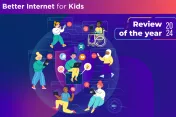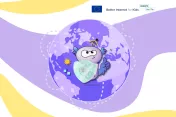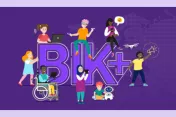In the spotlight

- BIK news
The Better Internet for Kids annual report 2024 is out
- campaign
All DIGITAL Weeks campaign 2025

- deep dive
Manipulative marketing in games

- BIK news
Worldwide celebrations for Safer Internet Day 2025

- BIK news
The first BIK+ strategy evaluation
In the spotlight
National trends, issues and initiatives



Safer Internet Forum 2023 wrap up
Learning corners

Discover advice and resources to help you navigate the online world, along with insights into the work of BIK youth across Europe.

Explore information and resources to help you support your children to have positive online experiences.
Upcoming events
International Girls in ICT Day 2025
World Intellectual Property Day 2025
World Press Freedom Day 2025
Latest news
In the spotlight: Safer Internet Centre Albania
As part of the Better Internet for Kids (BIK) Quality Assurance Programme (QAP), the Insafe-INHOPE Coordination Teams are jointly conducting a set of fifteen country visits to national Safer Internet Centres (SICs) to better understand what is happening in the Member States: monitoring emerging issues and challenges, identifying good practices to be shared, and harvesting the results of Better Internet for Kids (BIK) policy. The national visit to the Safer Internet Centre Albania took place on 14 January 2025.
In the spotlight: Safer Internet Centre North Macedonia
North Macedonian Safer Internet Centre (SIC) project, MKSafeNet, is coordinated by the Ministry of Digital Transformation which was represented during this meeting by its Minister, Stefan Andonovski, who emphasised the importance of the project and the dedication of the team behind it.
'The conversations from the dark’: Documentary film from the Czech Republic
Every day, dozens of young people seek help at Linka bezpečí (Czech helpline). Are you curious about what an immediate anonymous crisis intervention looks like? And what is the purpose of long-term therapy? Watch the documentary film ‘Conversations from the dark’ by Tereza Reichová, which offers an inside look at the anonymous crisis intervention at Linka bezpečí.
Safer Internet Centres celebrate SID 2025: Italy
The Safer Internet Centre proposed a hybrid edition of Safer Internet Day for this year, organising a live event followed by schools also streaming the event. A communication campaign was launched alongside the release of the third season of the We Are Fearless web series videos, giving all schools in the area the opportunity to interact and promote their events through the Generazioni Connesse website.






















